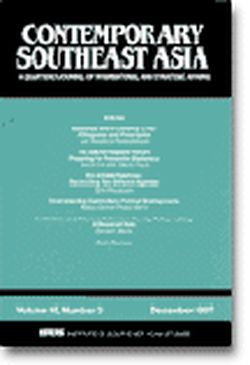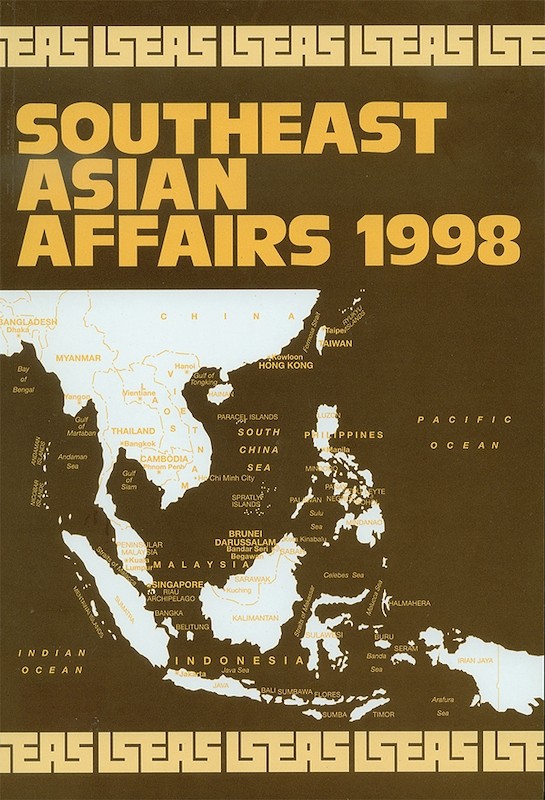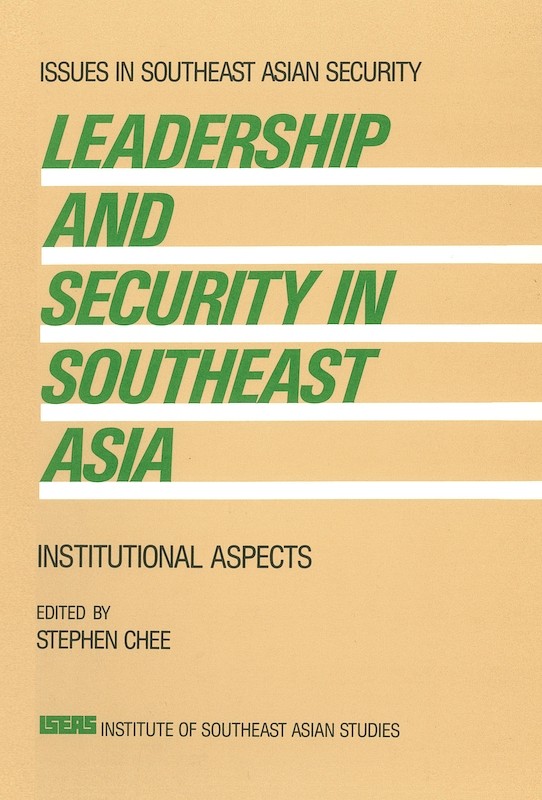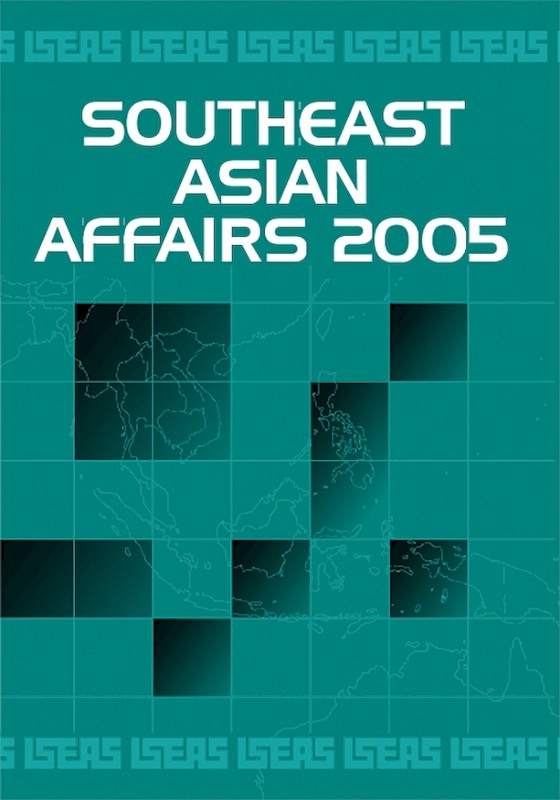Contemporary Southeast Asia: A Journal of International and Strategic Affairs Vol. 11/2 (Sept 1989)
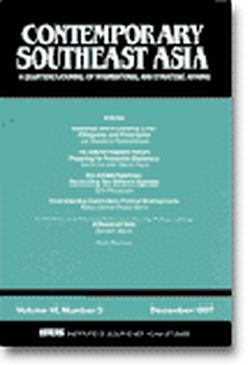
Contents
-
Preliminary pages
- ARTICLES
-
Leadership Succession and Security in Southeast Asia, by Yong Mun Cheong , author see abstractThis paper unravels the links between leadership succession and security in Southeast Asia, in all its diversity. From Singapore's Lee Kuan Yew to the Philippine's Marcos, various recent and forthcoming exit and succession scenarios for Southeast Asian nations are explored; the author theorises some connections between probable events and implications for security.
-
The Indonesian Vice-Presidency: Problems in Leadership Succession, by Vasta Charmandira Choesin, author see abstractConstitutional Background; Historical Background; Mohammad Hatta; The New Order Era; Vice-Presidents from the Military; Recent Developments
-
Leadership Change and Security In Malaysia: From the Days of the Tunku to Dr Mahathir Mohamad, by Chamil Warya, author see abstractPolitical Succession: Constitutional Means and the UMNO Mechanism; Leadership Change and Security: The Malaysian Case; National Security: A Major Concern of the Prime Minister; The Management of Security Issues: Instrument and Mechanism; Links Between the Professional Security Organizations and the Leadership; Management of Security Issues: Style and Approach of Dr Mahathir Mohamad
-
Leadership Change and National Security in the Philippines: 1983-88, by David Timberman, author see abstractNational Security in the Third World; National Security in the Philippines; Domestic Political Violence; Relations with the United States; Economic Security; Other Foreign Relations; Leadership Change and National Security: 1982-86; 1982: The Calm Before the Storm; The Aquino Assassination; The ``Snap" Election and the ``EDSA Revolution"; The ``Snap" Election; The ``EDSA Revolution"; The Aquino Government and National Security, 1986-88; Political Violence; Relations with the United States; Economic Security; Regime Legitimacy: A New Element of National Security ; Conclusions and Prospects for the Future.
-
In the Era of Renovation: Leadership and Security in Vietnam, by Kim Ninh, author see abstractAfter the War; Security Issues; multitude of forces potentially hostile to the revolution in the South, from the 468,000 members of the Saigon regime's armed forces, to the 450,000 members of reactionary political parties, from the 60,000 Buddhist nuns and bonzes and several hundred thousand Catholics to the nearly 500,000 overseas Chinese.SUP 5 SUP; who left North Vietnam in 1954, people who have studied in or visited the United States, and writers and intellectuals thought to be antagonistic to the new socialist society. Also detained are members of former political parties, individuals classed as ``mercantile capitalists" and others regarded as belonging to the bourgeoisie.SUP 7 SUP; Renovation and Leadership Change; negative phenomena in society have increased. Social justice has been violated. Law and discipline are not strictly observed. Abuse of power and corruption by a number of state cadres and employees and the activities of persons engaged in illegal business have not yet been severely punished in time. SUP 27 SUP ; the situation of special privilege and bullying the masses in the sectors and echelons, especially at the basic level, is still quite widespread and democratic rights have not been respected, and in places and at times have even been trodden. SUP 30 SUP ; For our country, renovation is an imperative demand of the revolutionary cause and a matter of vital significance. For many years now, there has existed in our knowledge of socialism many outdated concepts, especially those concerning industrialization, socialist transformation, the economic management mechanism, distribution and circulation, and so forth. This is a cause of the slow development and concretization of the general line and the economic line in the initial state of the period of transition. Therefore, only by means of renovation, first of all renovation of our thinking, can we overcome difficulties and achieve the objectives set forth by the sixth congress. SUP 39 SUP ; Effects of Renovation; Some Concluding Thoughts

